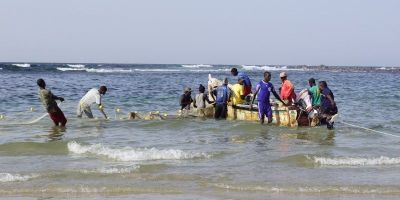Exploring my field site in Vietnam - Postgraduate student Suzanne Stas

Postgraduate student, Suzanne Stas, talks about her field site in Vietnam.
“Are you doing a PhD in tropical forest ecology in Leeds?” People often ask me this with questioning faces. Indeed, it means that I am connected to the University of Leeds, but my field site is in Vietnam. Therefore I went last month with my supervisor Dominick Spracklen on a two-week scoping trip to Vietnam. The aim of our trip was to meet local partners and organizations, visit my field site and to understand the logistics for my upcoming fieldwork.
My research takes place in the Khe Nuoc Trong forest in Quang Binh Province. The forest is protected for the important watershed services it provides, but illegal logging is frequently occurring and threatens the forest and its valuable ecosystem services. A new method to finance conservation of the world's forests is to create a value for the carbon stored within trees and vegetation. Individuals or companies that want to reduce their carbon footprint can purchase carbon "credits", with the money used to protect forests. Before this can happen, we need a better understanding of the amount of carbon stored within forests and how this is altered when forests are logged. During my PhD, I will study the impacts of forest degradation and regrowth on the carbon storage and sequestration in the Khe Nuoc Trong forest.
The first few days we met people from several environmental research institutes, NGO’s and a local university, to get a better understanding what forestry and carbon-related work has already been done in this region. Geared up with leech socks and a GPS, we then went on a three-day trip to the forest. As it was the end of the rainy season, the water levels were quite high and we had to cross the river many times. After a five hour hike we reached our camp site: a spot uphill where we built a quick forest camp, put up our hammocks and took a shower in the river. The next day we further explored the forest to get a better impression where the logging takes place, how the forest looks like and where we want to establish our sample plots. The following day we hiked back to the village and took the night train to Hanoi. This trip has provided us all the necessary information to plan my research and fieldwork for next year.
This work is funded by the World Land Trust. To find out more about their conservation work in the Khe Nuoc Trong forest visit http://www.worldlandtrust.org/news/2014/09/khe-nuoc-trong-forest-project-officially-launches-vietnam.




